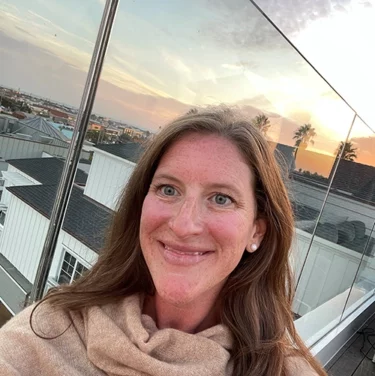Watch our webinar recording to hear experts in the field share how they integrated overdose prevention and response strategies within their community supervision programs.
Learn MoreOverdose Prevention and Response in Community Corrections: Self-paced Courses
Self-paced Courses
The National Council for Mental Wellbeing, with support from the Centers for Disease Control and Prevention (CDC), has created a series of free, self-paced courses on overdose prevention and response for community corrections. All courses were reviewed and narrated by subject matter experts currently working in the community corrections field.
The findings from our Overdose Prevention and Response in Community Corrections Environmental Scan suggest that community supervision officers are uniquely positioned to reduce overdose risk among individuals under supervision when equipped with the necessary knowledge and skills. To succeed in this role, community supervision staff need education on substance use disorders and training in evidence-based overdose prevention practices and the skills needed to build trust and rapport with people under supervision.
How to Access
You can access all courses on the National Council’s Relias Academy page. They are offered free of cost, but users need to create a free account to register for courses. From the Relias site, select the “Overdose Prevention for Community Supervision Officers Bundle” or “Overdose Prevention for Community Supervision Leaders and Administrators Bundle” to view the included courses and add them to your cart. It is recommended that you add the full bundle to your cart instead of individual courses to gain access to the full series at once.
Review the course outlines below for a brief description of the courses, as well as downloadable supplemental tools and resources that can be used in conjunction with each course.
Courses for Community Supervision Officers
This set of courses provides essential information needed for community supervision officers to successfully implement overdose prevention and response practices within their work.
Course 1: Introduction to Overdose Prevention in Community Supervision
This course provides an overview of the vital role that community supervision officers play in overdose prevention and describes ways to integrate overdose prevention and response practices in supervision duties.
Supplemental Tool: Overdose Risk Assessment Checklist
A checklist to help community supervision officers determine risk factors that increase an individual’s chances of overdose.
Course 2: Understanding Substance Use Disorders and Recovery
This course provides an overview of the sciences of addiction and recovery to equip community supervision officers with the basic information they need to understand overdose prevention and risk reduction strategies.
Supplemental Tool: Science of Addiction Fact Sheet: What You Need to Know About Addiction
A fact sheet that provides information to help community supervision officers understand the science behind substance use disorders and addiction.
Course 3: Collaborating with Community-based Recovery and Harm Reduction Services
This course provides an overview of harm reduction principles and strategies as well as strategies for locating and collaborating with community-based recovery and harm reduction services.
Supplemental Tool: Establishing Effective Partnerships for Overdose Prevention and Recovery Support
A list of potential stakeholders and partner organizations for linking individuals who are at risk for overdose to evidence-based treatment, services and supports.
Course 4: Medications for Opioid Use Disorder
This course provides an overview of medications for opioid use disorder (MOUD) and how it can benefit individuals under community supervision.
About the Narrator: Corinne Briscoe

Corinne Briscoe currently serves as the Director of Probation and Court Services of the Macoupin/Greene/Scott Probation District in the 7th Illinois Judicial Circuit. Corinne oversees a team of eight probation officers with active caseloads and two administrative staff members, across three offices. Within her district, she acts as the coordinator of two active drug courts and serves as a Regional Representative for the American Probation and Parole Association. As a Regional Representative, Corinne works to strengthen the connection between probation and parole in Illinois, Indiana, Michigan and Ohio to national initiatives and cutting-edge practices. She is active in the Illinois Probation and Court Services Association, previously serving a four-year term as the Program Co-Chair managing conference programming and logistics.
Corinne began her career as an Adult Probation Officer in Morgan County, Illinois, and then as a Field Coordinator with the Administrative Office of the Illinois Courts. She previously trained Adult and Juvenile Basic Training through the Administrative Office of the Illinois Courts for approximately ten years. When Corinne is not working in criminal justice, she enjoys spending time with her husband and four children.
Courses for Community Supervision Leaders and Administrators
This set of courses provides essential information needed for community supervision leaders and administrators to successfully implement overdose prevention and response practices within their work.
Course A: Introduction to Overdose Prevention in Community Supervision
This course outlines the main administrative considerations and challenges in implementing overdose prevention and response programs. It also describes the benefits of integrating recovery-oriented and harm reduction principles in community supervision.
Supplemental Tool: Overdose Prevention for Community Supervision Leaders and Administrators: Course Series Overview
A brief overview of each of the three courses in the series designed for community supervision leaders and administrators to successfully implement overdose prevention and response practices.
Course B: Building Systems for Overdose Prevention in Community Supervision
This course provides a systems-level view of overdose prevention in community supervision and describes organizational protocols, policies and processes that support overdose prevention and response.
Supplemental Tool: Addressing Systemic Bias in Community Corrections
Key questions community supervision agencies should consider when addressing racial disparities and systemic bias affecting marginalized groups.
Supplemental Tool: Annotated Resource List for Addressing Substance Use Disorder Stigma/Bias
An annotated list of resources that includes helpful tools and resources to address stigma and bias around substance use disorders.
Course C: Integrating Peer Recovery Support for Overdose Prevention in Community Supervision
This course provides information on peer recovery support services (PRSS) and its operational benefits. It includes information on how to integrate PRSS within community supervision agencies.
Supplemental Tool: Peer Support Services and Community Supervision Examples
A selected list of community supervision programs that partner with or integrate peer recovery support services.
About the Narrator: Dr. Gregory Dillon

Dr. Gregory Dillon, LPC-S is the Director for the Brazoria County Community Supervision and Corrections Department (CSCD) and an adjunct professor for Texas Southern University in Houston, Texas.
Dr. Dillon has worked in the field of community supervision for over 25 years as an officer and clinician, starting his career at the Sacramento, CA, juvenile probation department and being a previous deputy director for Dallas County CSCD. He currently serves on the Texas Probation Association Board, Texas Probation Legislative Committee and TDCJ Legislative Committee. He is also the region 11 representative for the Texas Probation Advisory Committee.
Dr. Dillon is an advocate of evidenced-based practices on the local, state and national levels and is passionate about the need for re-envisioning and transformational change within the field of community supervision and corrections.
Review the findings from our environmental scan.
Learn MoreThis work is supported by the Centers for Disease Control and Prevention (CDC) of the U.S. Department of Health and Human Services (HHS) as part of a financial assistance award totaling $250,000 with 100% funding by CDC/HHS. The contents are those of the author(s) and do not necessarily represent the official views of, nor an endorsement by, CDC/HHS or the U.S. Government.

